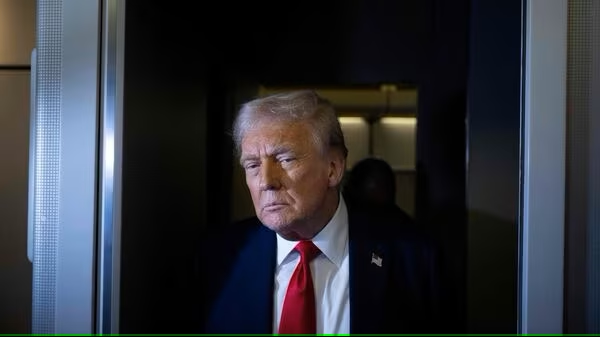In a dramatic escalation of trade policy, President Donald Trump has warned that more tariffs could be on the horizon as his administration readies a sweeping rollout of import taxes dubbed the “Liberation Day” tariff transformation.
The new measures, set to come into effect on April 2, mark the beginning of a reciprocal tariff policy targeting nations across the globe, with early indications suggesting that countries like India and Thailand will bear the brunt of the economic heat.
In a series of live updates, the Trump administration has maintained that these reciprocal tariffs will apply to all trading partners, a move that could dramatically reshape global trade dynamics.
The administration argues that the new tariff strategy is designed to force nations to negotiate more favorable trade terms and to protect domestic industries from what it describes as unfair trade practices.
However, experts warn that the broad application of these measures may trigger retaliatory actions from affected countries and create significant disruptions in international commerce.
Trump’s rhetoric in recent briefings has been unambiguous. “We are not going to allow other nations to take advantage of our market any longer,” the President declared, emphasizing that the tariffs are just the beginning of a larger strategy aimed at leveling the playing field.
This approach, which the administration labels as a move to “liberate” American trade, seeks to recalibrate imbalances that have long plagued the country’s export-import relationships.
Economists point to the potential risks of such a broad-based tariff regime. Trade analyst Marcia Chen noted, “Imposing tariffs on all nations at once, especially on key players like India and Thailand, is a high-stakes gamble.
It could lead to a cascade of retaliatory tariffs that might ultimately harm U.S. exporters and consumers.” The uncertainty surrounding the economic impact has already sent ripples through global markets, with investors bracing for potential shifts in trade patterns and currency fluctuations.
The new tariff policy is also sparking debate over its long-term implications for global supply chains. Many multinational companies have expressed concern that the rapid imposition of tariffs could force them to rethink production strategies and shift sourcing away from the United States.
“Our supply chains are highly integrated with global markets,” explained trade consultant Ravi Desai. “Abrupt changes in tariff policy not only disrupt these networks but also increase operational costs, which are often passed on to consumers.”
Critics argue that Trump’s aggressive tariff strategy, while aiming to protect American jobs and industries, may have unintended consequences. Analysts warn that in the interconnected world of modern trade, retaliatory tariffs from other nations could escalate into a full-blown trade war, potentially stifling economic growth.
“Trade wars are rarely winners,” remarked international economist Laura Kim. “When countries impose tariffs indiscriminately, it creates uncertainty, reduces trade volumes, and ultimately hurts the global economy.”
Supporters of the policy, however, contend that the move is necessary to counteract years of perceived unfair trade practices. They point to trade deficits with several key nations and argue that previous negotiations have failed to secure better terms for American businesses.
“This is about enforcing fairness in trade,” said a senior official from the administration. “By applying reciprocal tariffs, we are compelling our trading partners to reconsider their own policies and engage in more balanced negotiations.”
For India and Thailand, the forthcoming tariffs could mean significant economic adjustments. Both nations have emerged as major players in global manufacturing and exports, and any disruption to their trade relationships with the United States could have far-reaching effects on their economies.
Local industries in these countries are now scrambling to assess the potential impact, and government officials have signaled that they may need to consider countermeasures to mitigate the fallout.
As the April 2 deadline approaches, global markets remain on high alert. Stock indices around the world have experienced increased volatility in anticipation of the new tariff measures, and diplomatic channels are reportedly abuzz with discussions on potential responses.
Trade negotiations, already tense in recent years, are likely to enter a new phase as countries reassess their strategies in light of the U.S. policy shift.
In sum, President Trump’s “Liberation Day” tariff transformation represents a bold and controversial reimagining of American trade policy. While its proponents argue that it will protect domestic industries and restore balance to trade relationships, the risks of retaliation and economic disruption loom large.
With major nations like India and Thailand positioned as the initial targets, the global trade landscape could soon be entering a period of significant realignment—a development that investors, businesses, and policymakers will be watching with keen interest.




